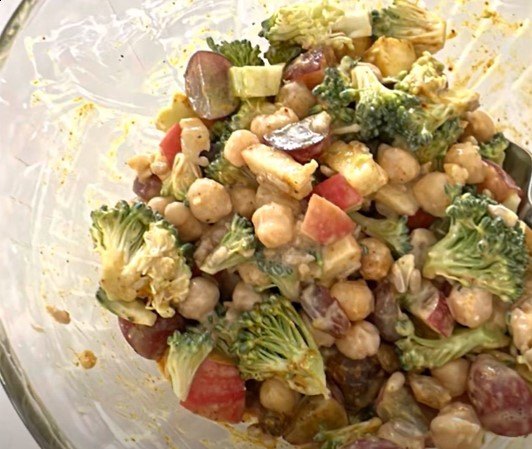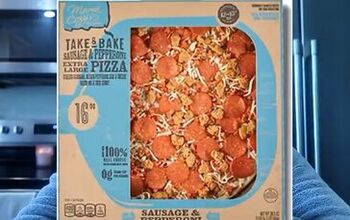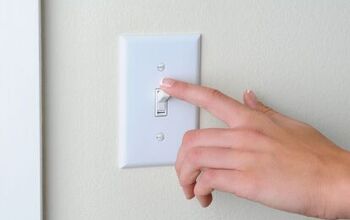Is It True That Intermittent Fasting Saves Money on Groceries?

Intermittent fasting saves money–it’s the most budget-friendly and diet-friendly lifestyle you’ll ever try. I love it–I love the discipline and intentionality of it. I lost about 20 pounds after eating this way for a year and I love the way that I feel I’ve seen such great results from this way of eating.
I follow the 16:8 method. That means I eat in an eight-hour eating window and I fast for 16 hours.
My fasting schedule
I typically break my fast at 9:30 in the morning and I’m done eating dinner by 5:30 in the evening. That really means I can eat whatever I want within those eight hours. But, I don’t just eat whatever I want. I’m very intentional with what I eat in my eight-hour eating window.
Why is intermittent fasting so budget-friendly?
In my opinion, if you are an impulse shopper, you are an impulse eater. If you are intentional about how you spend your money–you have a grocery budget you’re going to stick to–you will oftentimes be more intentional with what and when you eat. You’re more mission-focused.
If your goal is to save money, you won’t overeat by eating out a lot because that just wastes money. Or, you won’t buy expensive processed snacks and other foods anymore. See how intermittent fasting and budgeting totally collide?
Intermittent fasting equals freedom
There’s no rule on how much protein, carbohydrates, or fats you have to have when you are doing an intermittent fast. There are no restrictions. However, if you are fasting to lose weight, you’ll have to adjust what you eat in your eating window.
You eat less food
You eat less food when intermittent fasting, which saves money. You don’t spend money on nighttime snacking. You will also be more focused on cutting down your portions.
You don’t want to stuff yourself too full before you begin your fasting window or you won’t feel good. You have your larger meal in the middle of the day and then begin tapering off.
Family dinners and intermittent fasting
My family does not do intermittent fasting. So during family dinners, I’ll just have more salad than they do so I can have a lighter meal. For example, if we have pizza, I’ll serve salad and pizza, but I’ll have more salad than pizza.
I feel great afterward, I don’t feel bloated, I just eat and enjoy the meal, then I start my fast.
You’re more focused on whole foods
Whole foods are ultimately cheaper than processed foods. Whole foods have more fiber, so they fill you up faster than processed foods.
So in the morning, focus on grains and bulking them up with some fruit. I add chopped apples in the morning to my grains to fill me up. I incorporate beans into my diet throughout the day for protein. I use hemp seeds for protein, too.
Intermittent fasting is good for your health
Fasting helps stabilize your blood sugar, lowers your cholesterol, reduces blood pressure, boosts your immune system, eliminates inflammation, and heals your gut.
All of this happens because you are giving your body a break. You’re giving your body a rest from always digesting food so it can heal itself from whatever needs healing.
If you suffer from autoimmune health issues, ask your doctor if intermittent fasting can help. I did ask my doctor and I was given the thumbs up. I’ve only found benefits to intermittent fasting. It’s done wonders for my body, even beyond just losing weight. My cycles and pain levels have all improved.
How intermittent fasting saves money
Overall, you’ll save money with intermittent fasting by spending less on groceries. When you go shopping, focus on buying whole foods and real fruits and vegetables, nuts, and grains. They are still the cheapest foods available.
Do you think intermittent fasting is something you might try? Let me know in the comments if you think intermittent fasting can save money on groceries!















![101 Items to Get Rid of With No Regret [Free Declutter List]](https://cdn-fastly.thesimplifydaily.com/media/2022/08/30/8349390/101-items-to-get-rid-of-with-no-regret-free-declutter-list.jpg?size=350x220)




Comments
Join the conversation
Not diabetic smart